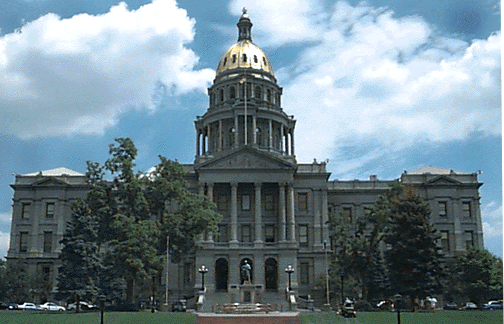On Wednesday, January 24, 2024, Independence Institute’s Energy and Environmental Policy Analyst Jake Fogleman testified on SB24-039 in the Colorado Senate Transportation & Energy Committee.
The bill would have amended the state’s statutory definitions of “clean energy” and “clean energy resources” to include nuclear energy. The committee ultimately voted not to pass the bill at the end of the hearing. Senators Faith Winter (D.), Kevin Priola (D.), Lisa Cutter (D.), and Tony Exum (D.) voted against the bill, while Senators Nick Hinrichsen (D.), Byron Pelton (R.), and Cleave Simpson (R.) voted in favor of it.
You can listen to the audio of the committee hearing here (Jake’s testimony starts at 7:44:49) or read the transcript below:
Madam Chair, members of the committee, thank you for the opportunity to provide comment today on Senate Bill 039.
My name is Jake Fogleman, and I am a policy analyst with the Independence Institute, Colorado’s free-market think tank.
As a free-market think tank, Independence Institute generally opposes state policy that unfairly picks winners and losers and generally supports policy to remove barriers to entry into the marketplace. We believe Bill 039 aligns with those principles as it relates to energy generation.
Coloradans, through their elected representatives, have committed to the decarbonization of the state’s electricity sector no later than mid-century, and the general assembly has adopted a statutory definition of “clean energy resources” that utilities must use to meet that goal. This definition, as it’s currently written, specifically excludes nuclear energy from being eligible.
While Colorado does not have an explicit ban on the construction of nuclear power plants like some other states, this definitional exclusion acts as a disincentive to any utility looking to comply with the state’s clean energy goals who would otherwise be open to exploring nuclear power. This definition also determines eligibility for certain clean energy financing programs and the state’s renewable portfolio standards, which could be updated by the General Assembly at any time.
Adding nuclear to the state’s statutory definition of “clean energy” would remove this de facto penalty from Colorado law and allow the country’s single-largest source of zero-carbon power to be considered on a level-playing field with other clean resources as we look forward to a carbon-free future.
That would align Colorado not only with the Biden administration and the U.S. Department of Energy, but with dozens of other states under the leadership of both political parties who have taken steps to recognize the value of nuclear energy for grid reliability and as a tool in the fight against climate change.
Nuclear is among the safest and lowest emitting technologies humanity has ever produced on a lifecycle basis, on par with wind and solar. It is also the most land-efficient energy source per unit of electricity generated, requiring 18 to 27 times less land than a utility-scale solar installation. This translates to fewer land use conflicts, as well as a boon for conservation and species biodiversity that more land-extensive energy resources could otherwise disrupt.
And while some may still have reservations about nuclear energy, it is important to keep in mind what this bill does not do. It would not suddenly mandate an immediate build-out of a new reactor fleet, nor would it guarantee that any nuclear energy is ever built at all in Colorado.
Instead, it would simply serve as a signal to would-be power providers that Colorado does not pick winners and losers when it comes to carbon-free resources and that any nuclear proposal would be given its day before the PUC, where its merits and demerits could be weighed without a de facto statutory penalty for producing clean power under a renewables-only definition.
Thank you committee members for your time.









